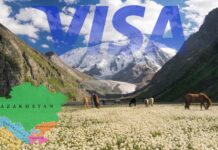Responding to the Taliban’s letter to US Congress seeking the release of Afghanistan’s central bank assets, the United States special representative for Afghanistan, Thomas West, said that the letter misconstrued the facts related to Afghanistan’s economic and humanitarian crisis.
In a series of tweets, Thomas West said Afghanistan was unfortunately already suffering a terrible humanitarian crisis before mid-August when the US had frozen the Afghan central bank’s assets, made worse by war, years of drought and the COVID-19 pandemic.
West said the US officials had made it clear to the Taliban years ago that taking power by force would result in non-humanitarian aid cut.
https://twitter.com/intent/tweet?ref_src=twsrc%5Etfw%7Ctwcamp%5Etweetembed%7Ctwterm%5E1461698124695719940%7Ctwgr%5E%7Ctwcon%5Es1_&ref_url=https%3A%2F%2Fwww.geo.tv%2Flatest%2F383171-us-envoy-thomas-west-reacts-to-talibans-letter&in_reply_to=1461698124695719940
https://twitter.com/intent/tweet?ref_src=twsrc%5Etfw%7Ctwcamp%5Etweetembed%7Ctwterm%5E1461698124695719940%7Ctwgr%5E%7Ctwcon%5Es1_&ref_url=https%3A%2F%2Fwww.geo.tv%2Flatest%2F383171-us-envoy-thomas-west-reacts-to-talibans-letter&in_reply_to=1461698124695719940
“U.S. officials made clear to the Taliban for years that if they pursued a military takeover rather than a negotiated settlement with fellow Afghans. Then critical non-humanitarian aid provided by the international community – in an economy enormously dependent on aid, including for basic services – would all but cease. That is what occurred,” he said.
‘Support must be earned by actions’
He maintained that the US will continue clear-eyed, candid diplomacy with the Taliban, adding that legitimacy and support must be earned by actions to address terrorism, establish an inclusive government and respect the rights of minorities, women – including equal access to education and employment.
‘US to continue supporting Afghan people with humanitarian aid’
The US envoy said that Washington will continue to support the Afghan people with humanitarian aid.
He said, “We have provided $474 million this year, applaud the robust efforts of allies and partners in this space and are making every effort to help the UN and humanitarian actors scale up to meet needs this winter.
Taliban seek release of Afghan funds
Earlier on November 17, the Taliban had called on the US Congress members to release Afghan assets frozen after their takeover of the country, warning economic turmoil at home could lead to trouble abroad.
3/5 …then critical non-humanitarian aid provided by the international community – in an economy enormously dependent on aid, including for basic services – would all but cease. That is what occurred.
— U.S. Special Representative Thomas West (@US4AfghanPeace) November 19, 2021
In an open letter, Taliban Foreign Minister Amir Khan Muttaqi had said the biggest challenge facing Afghanistan was financial insecurity, “and the roots of this concern lead back to the freezing of assets of our people by the American government”.
Washington had seized nearly $9.5 billion in assets belonging to the Afghan central bank, and the aid-dependent economy has effectively collapsed — with civil servants unpaid for months and the treasury unable to pay for imports.
“I present to you our compliments and would like to share a few thoughts on our bilateral relations,” Muttaqi had written, noting that 2021 was the centenary of Washington recognising Afghanistan´s sovereignty.
In measured understatement, he had added: “Akin to other world countries, our bilateral relations have also experienced ups and downs.”
5/5 The U.S. will continue to support the Afghan people with humanitarian aid. We've provided $474 million this year, applaud the robust efforts of Allies & partners in this space, & are making every effort to help the UN & humanitarian actors scale up to meet needs this winter.
— U.S. Special Representative Thomas West (@US4AfghanPeace) November 19, 2021
Muttaqi had said Afghanistan was enjoying stable government for the first time in over 40 years — a period that started with an invasion by the Soviet Union in 1979 and ended with the withdrawal of the last US troops on August 31.




